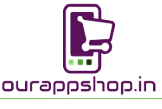Health IT Specialist Developer Career Plan (1 Year)
| Quarter | Goals and Objectives | Actions and Tasks | Skills to Develop/Enhance |
|---|---|---|---|
| Quarter 1 | – Strengthen your IT fundamentals | – Review IT concepts, networking, hardware, software, and healthcare IT fundamentals | – IT fundamentals |
| – Learn about healthcare systems | – Understand electronic health record (EHR) systems, health data standards, and interoperability | – Healthcare system knowledge | |
| – Study cybersecurity and HIPAA | – Learn about healthcare data security, HIPAA regulations, and privacy requirements | – Healthcare security knowledge | |
| – Collaborate with medical professionals | – Partner with healthcare providers to understand their needs, workflows, and technology challenges | – Collaboration with medical professionals | |
| – Join healthcare IT communities | – Participate in online forums, conferences, and communities focused on healthcare IT and technology | – Networking in healthcare IT field | |
| Quarter 2 | – Learn about health IT standards | – Study HL7, FHIR, CDA, and other health IT standards for data exchange and interoperability | – Health IT standards knowledge |
| – Develop healthcare application skills | – Learn how to develop and customize software solutions for healthcare settings | – Healthcare application development skills | |
| – Study telemedicine and remote care | – Understand telehealth platforms, remote monitoring solutions, and virtual care technologies | – Telemedicine and remote care knowledge | |
| – Enhance your communication skills | – Improve your ability to explain technical concepts to non-technical stakeholders in the healthcare domain | – Communication skills | |
| – Reflect on your progress and set new goals | – Evaluate your technical knowledge, healthcare understanding, and set new goals for your career development | – Self-assessment and goal-setting | |
| Quarter 3 | – Deepen your healthcare domain knowledge | – Study medical terminology, clinical workflows, and healthcare regulations to better understand industry needs | – Healthcare domain knowledge |
| – Explore healthcare analytics | – Learn about healthcare data analysis, reporting tools, and how data can be used to improve patient care | – Healthcare analytics knowledge | |
| – Focus on data interoperability | – Study how to exchange health data between different systems using health IT standards and APIs | – Data interoperability skills | |
| – Collaborate on healthcare projects | – Partner with healthcare organizations on projects that involve implementing or enhancing health IT solutions | – Collaboration on healthcare projects | |
| – Reflect on your progress and set new goals | – Evaluate your healthcare domain knowledge, project outcomes, and set new goals for your career development | – Self-assessment and goal-setting | |
| Quarter 4 | – Study emerging technologies | – Explore how emerging technologies such as AI, IoT, and blockchain are being applied in healthcare | – Emerging technology knowledge |
| – Develop solutions for healthcare challenges | – Create software solutions that address specific healthcare challenges, such as patient engagement or clinical support | – Healthcare problem-solving skills | |
| – Enhance your coding and development skills | – Continue coding hands-on to better understand healthcare application development practices | – Coding and development basics | |
| – Contribute to healthcare IT communities | – Share your knowledge and insights by contributing to healthcare IT blogs, forums, or community events | – Thought leadership in healthcare IT | |
| – Reflect on the year’s achievements | – Evaluate your growth, accomplishments, and set new long-term goals for your Health IT Specialist Developer career | – Self-assessment and goal-setting |
